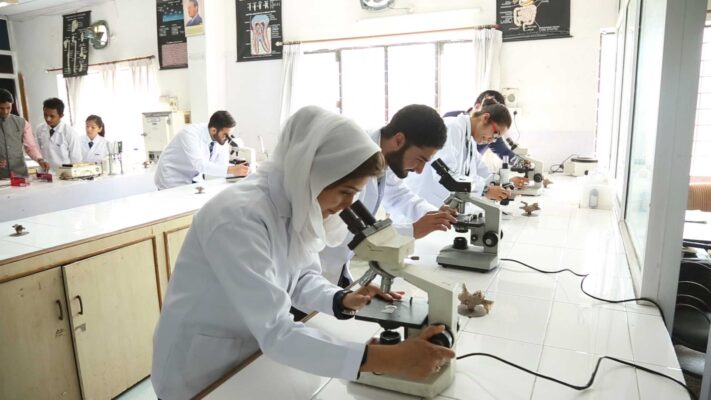Master of Science in Environmental Science
December 29, 2023 2024-03-19 10:04Master of Science in Environmental Science
Master of Science
in Environmental Science
Course Duration : 2 Years
About this Course
Extend your impact beyond medicine into the realm of environmental responsibility. Our Master's in Environmental Science program empowers you to understand and mitigate the ecological footprint of pharmaceutical practices. Explore sustainable drug development and contribute to a healthier planet while advancing your pharmaceutical expertise.
Some of the Popular Career Paths Include

Life of a
Student in Environmental Science
Extend your impact beyond medicine into environmental responsibility. In this Master's program, you'll explore sustainable drug development and contribute to a healthier planet while advancing your pharmaceutical expertise. Your journey is a balance of ecological awareness and pharmaceutical innovation.
Download Brochure
Our Proud Alumni

Animesh Banerjee

Jameson

Mritunjay Chaudhary

Lakshmi S. Nath

Pasan Pavan Kalyan

Rahul Jaiswal

Shivam Kumar

Yadhika Ghatani

Praveen Kumar Thakur

Shaswat Deep

Ritik Kumar
Photo Library
Crafting careers, fueling dreams. Where learning meets adventure, everyday.






























Frequently Asked Questions
A Master’s degree in Environmental Science opens up various career prospects across different sectors. Graduates may pursue roles such as Environmental Consultant, Sustainability Specialist, Environmental Policy Analyst, Conservation Scientist, Environmental Educator, Research Scientist, Environmental Health Specialist, Urban Planner, Renewable Energy Analyst, and Wildlife Biologist. These professionals work in government agencies, non-profit organizations, consulting firms, research institutions, educational institutions, and private industries to address environmental challenges, promote sustainability, and protect natural resources.
Pursuing a Master’s in Environmental Science offers numerous benefits. Graduates gain advanced knowledge and skills in areas such as environmental policy, sustainability, conservation, and resource management. This expertise opens doors to diverse career opportunities in government agencies, non-profit organizations, consulting firms, research institutions, and private industries. Additionally, students develop critical thinking, problem-solving, and research abilities through hands-on fieldwork and laboratory experiences. They also contribute to addressing pressing environmental issues, promoting sustainability, and safeguarding natural resources for future generations. Overall, a Master’s in Environmental Science equips individuals to make meaningful contributions to environmental conservation and sustainable development while advancing their professional careers.
The main requirements for being a student in a Master’s program in Environmental Science in Dehradun, Uttarakhand India typically include:
Educational Qualifications: A Bachelor’s degree in science and related field from a recognized university, with a minimum specified CGPA or percentage as determined by the institution.
Entrance Examination: Depending on the institution, candidates may need to qualify in a national or university-level entrance examination specific to the Environmental Science program.
Admission Application: Submission of a completed application form along with required documents such as transcripts, mark sheets, and proof of identity.
A Master’s program in Environmental Science typically covers a broad range of interdisciplinary topics related to the study of the environment, sustainability, and natural resource management. Some of the main areas that are commonly covered in a Master’s in Environmental Science program include–Environmental Policy and Regulation, Ecology and Ecosystem Dynamics,
Environmental Chemistry and Pollution Control, Climate Change and Global Environmental Issues, Sustainability and Resource Management, Environmental Impact Assessment (EIA),Natural Resource Management, Environmental Monitoring and Data Analysis, Environmental Health and Risk Assessment, Research Methods and Applied Fieldwork etc.



